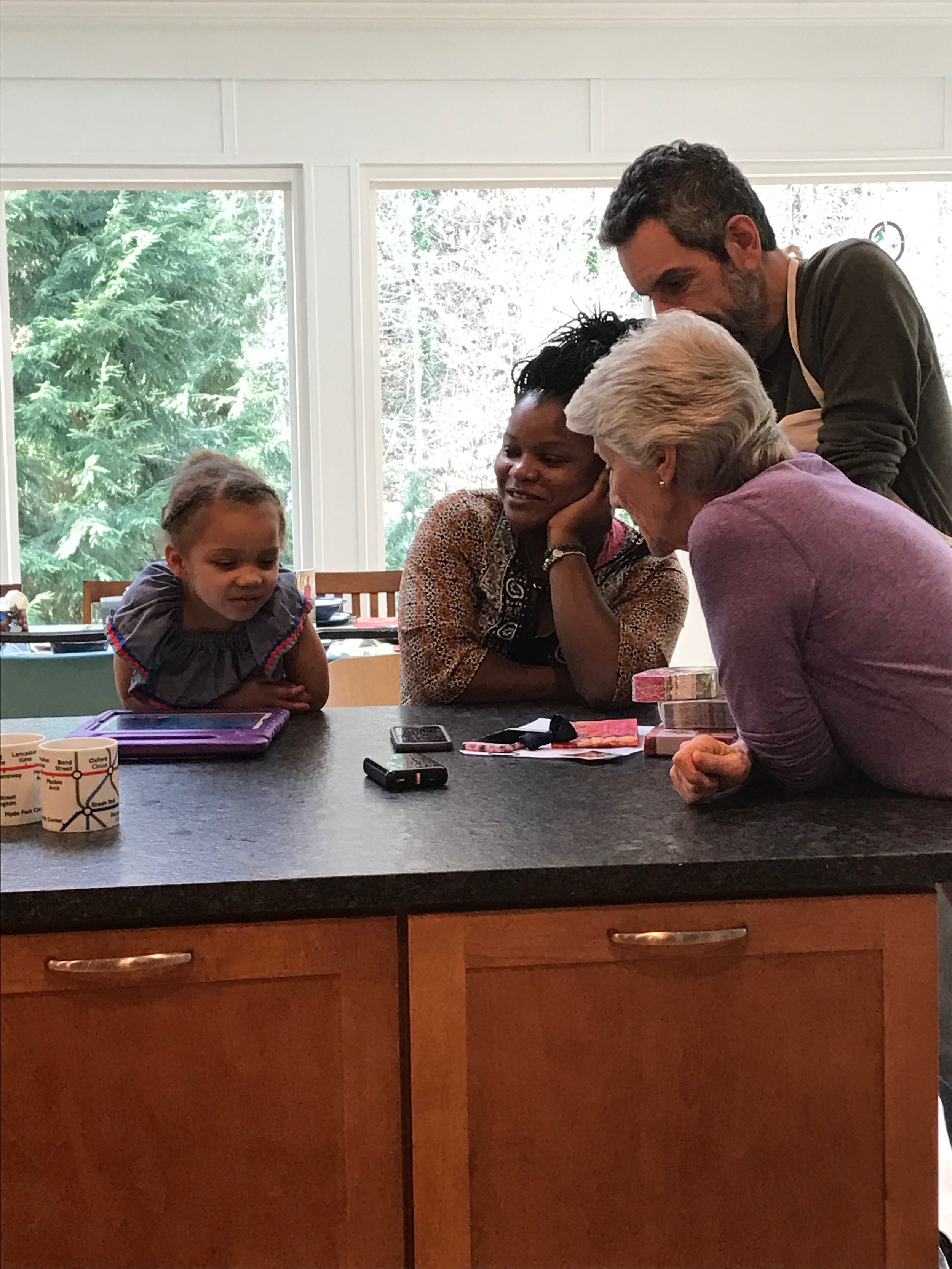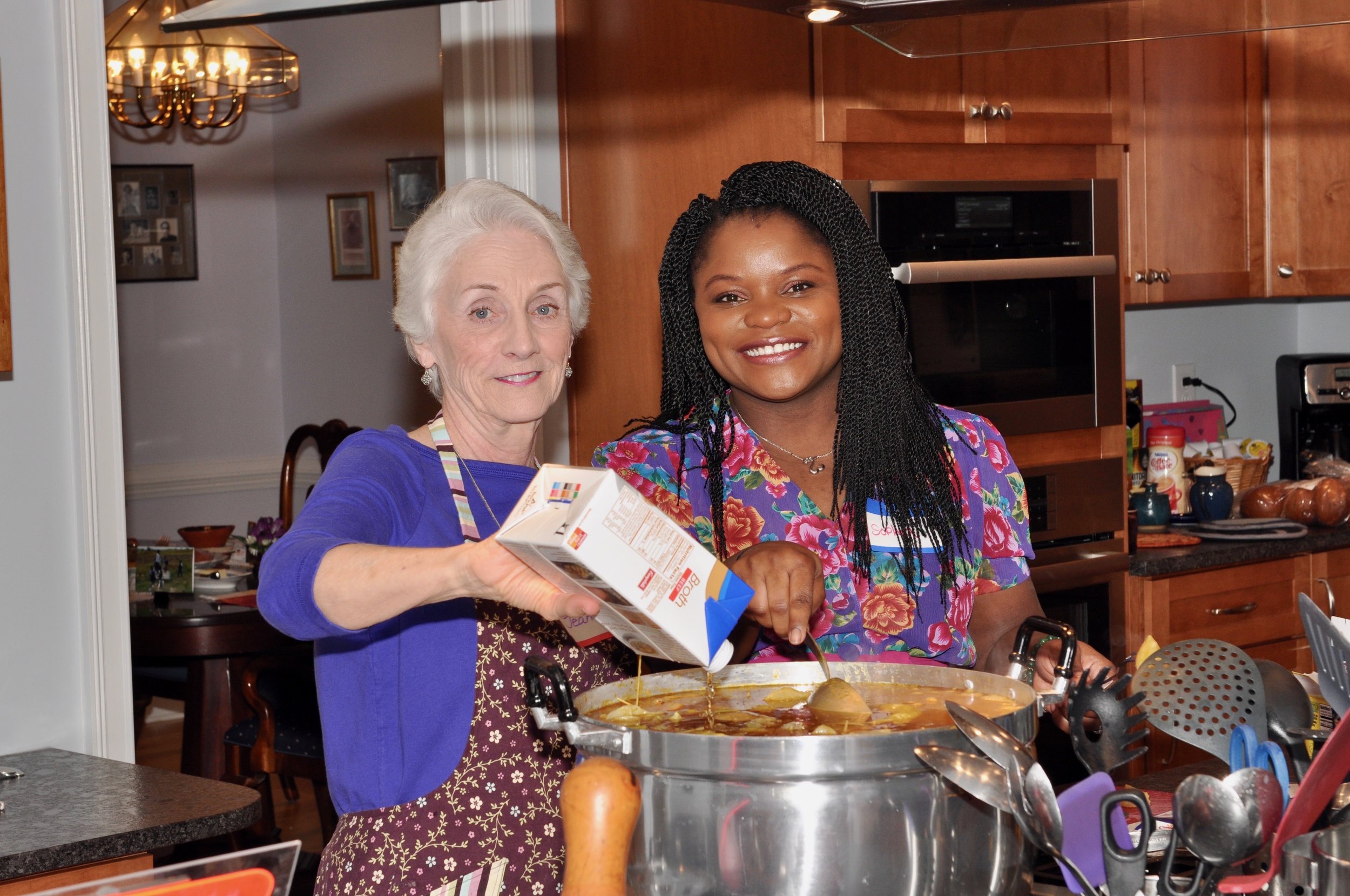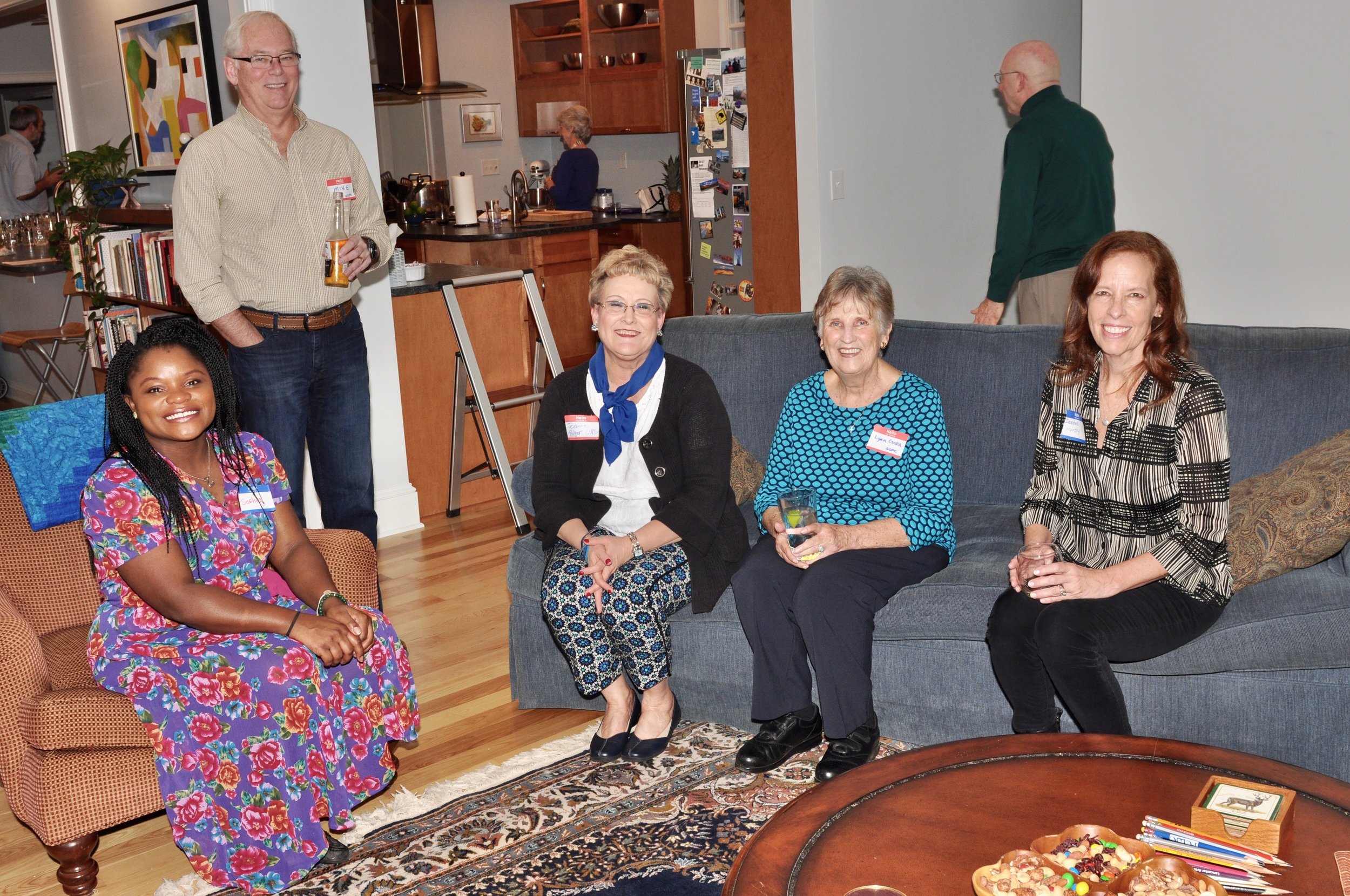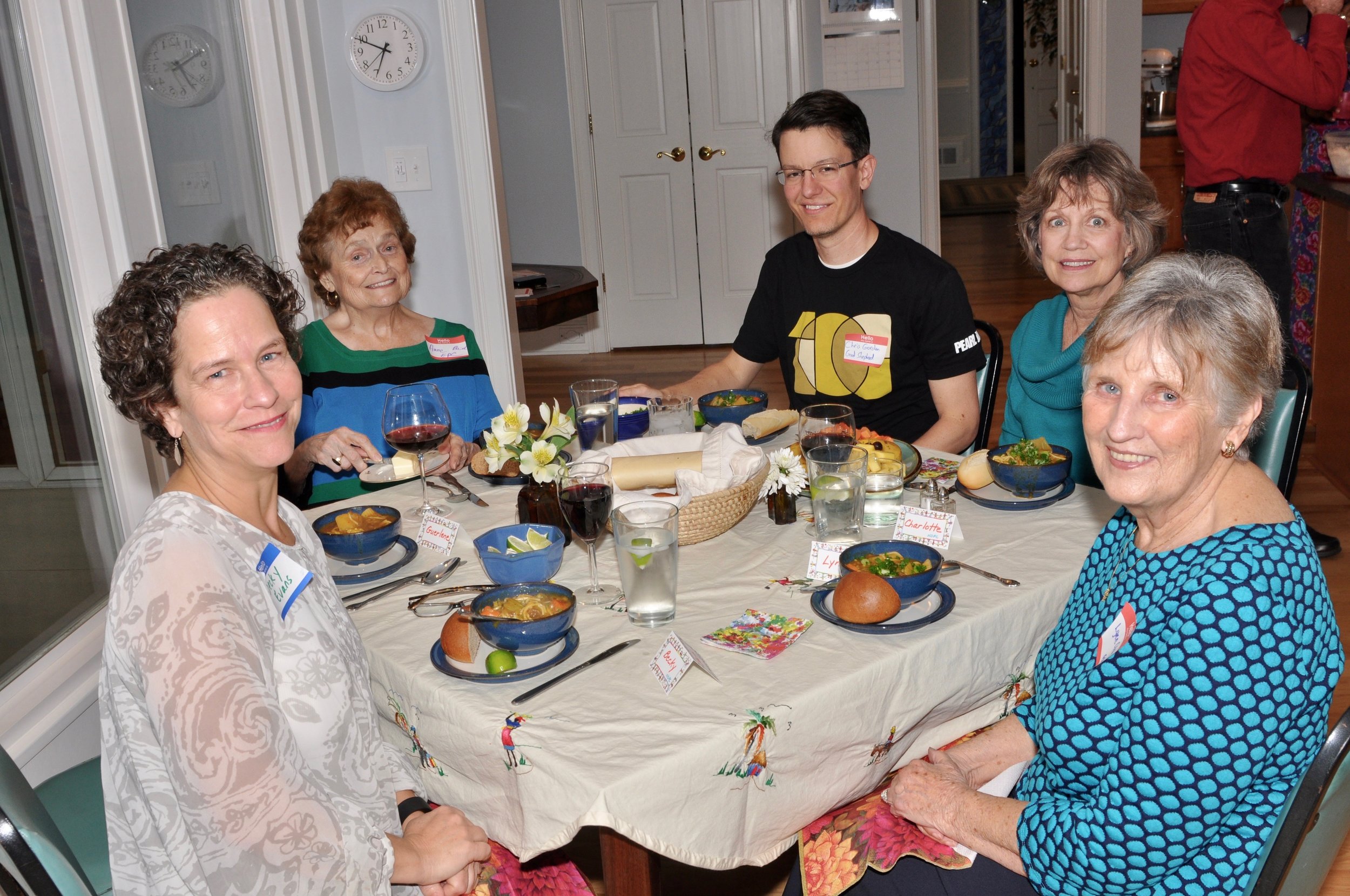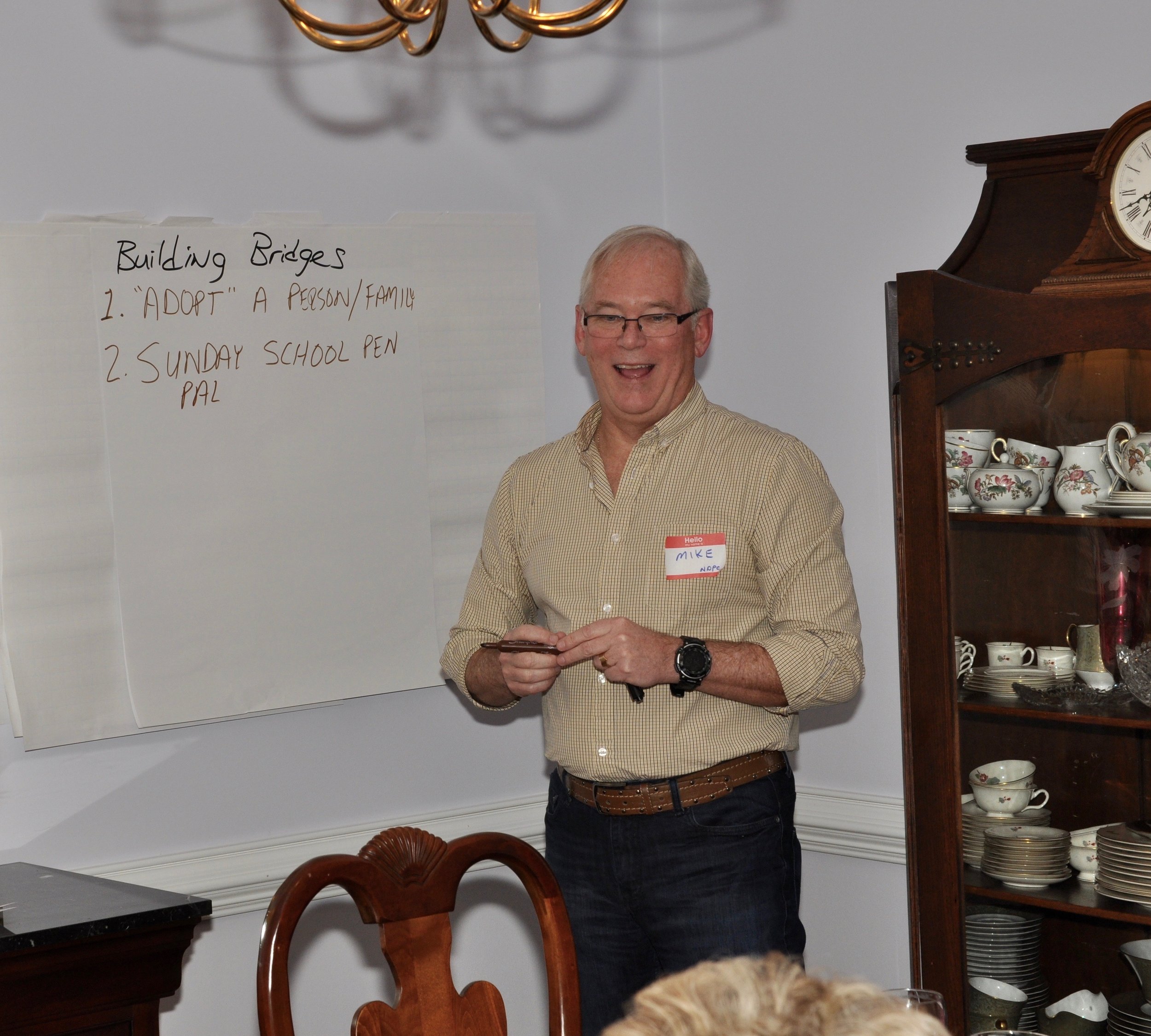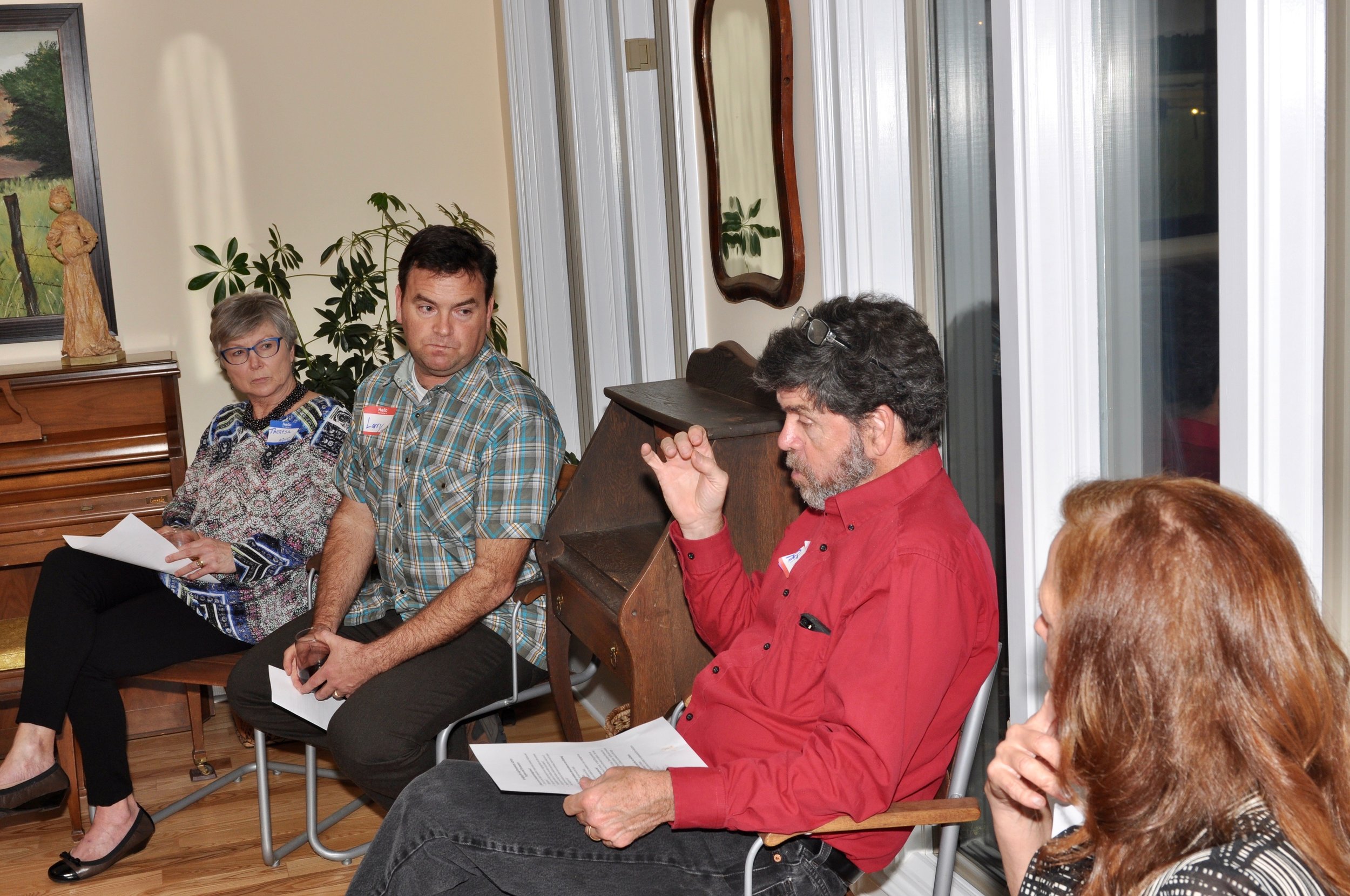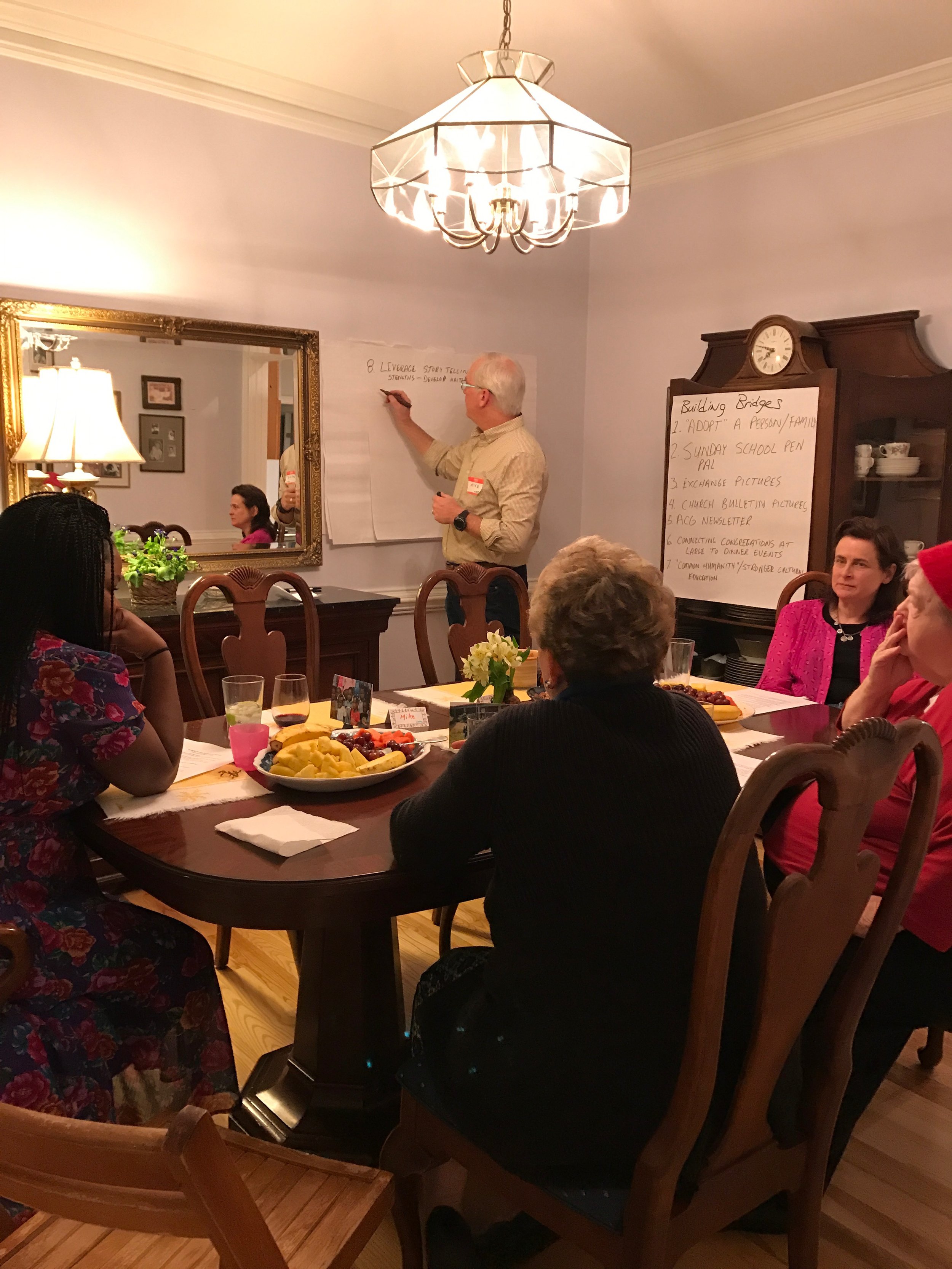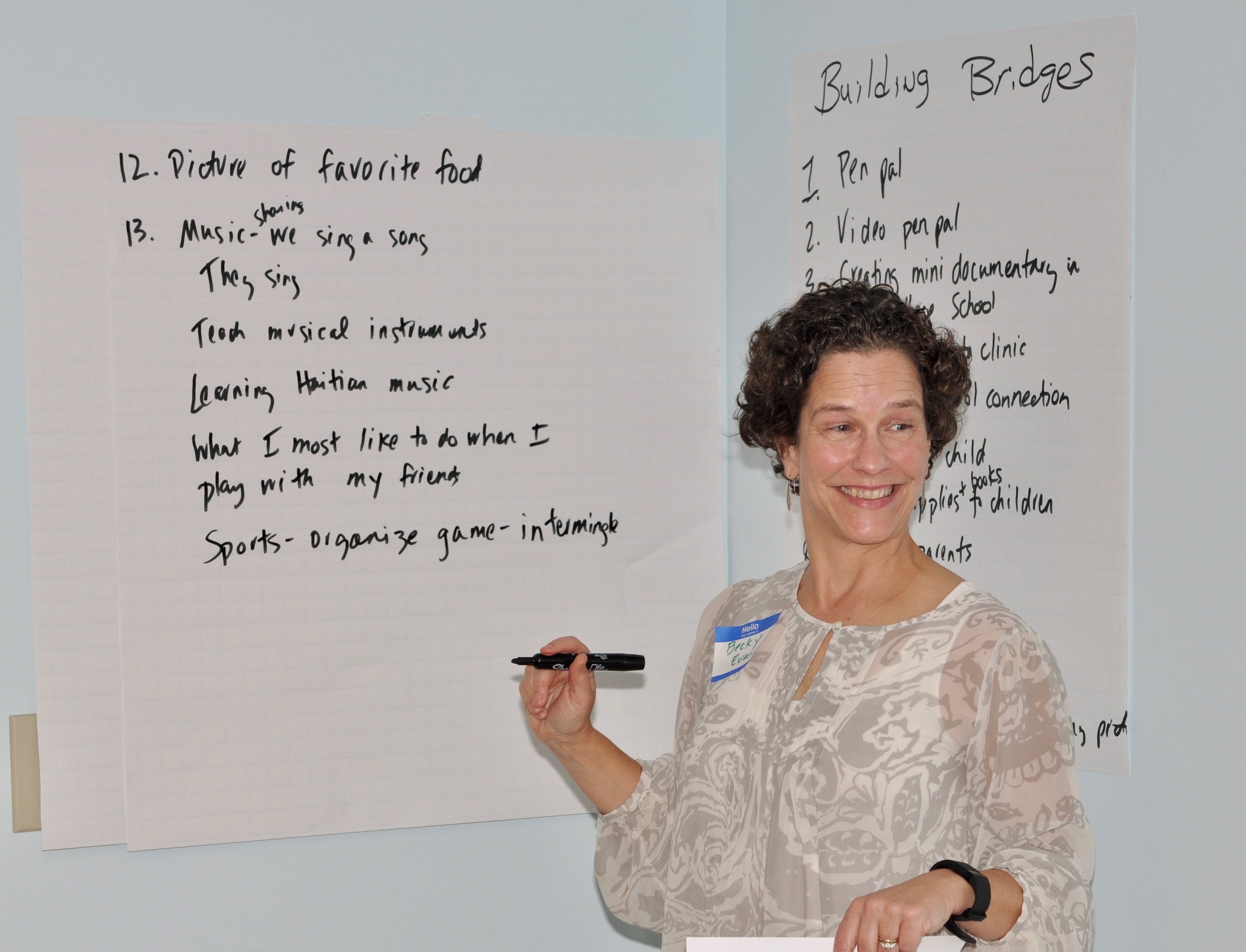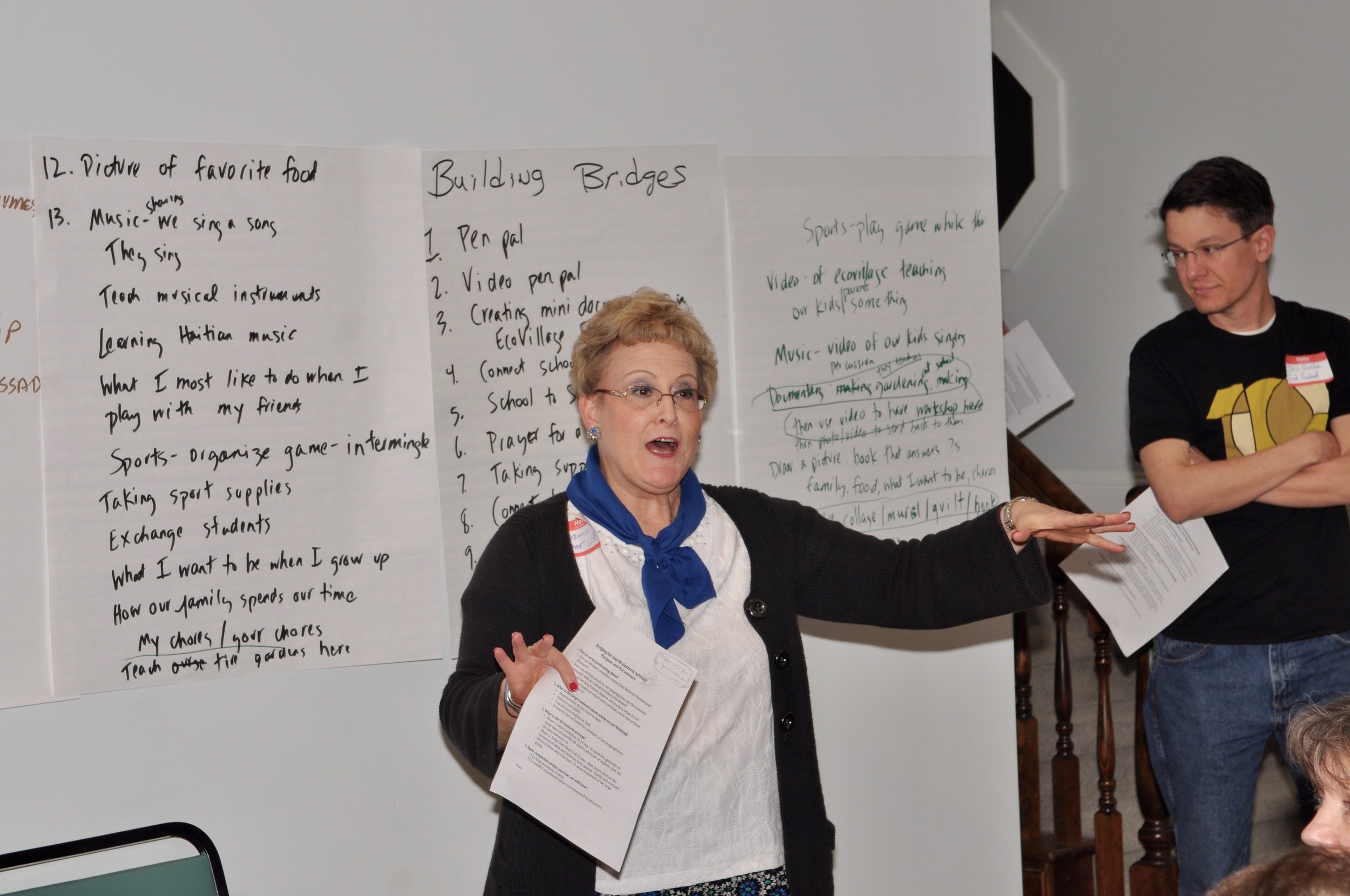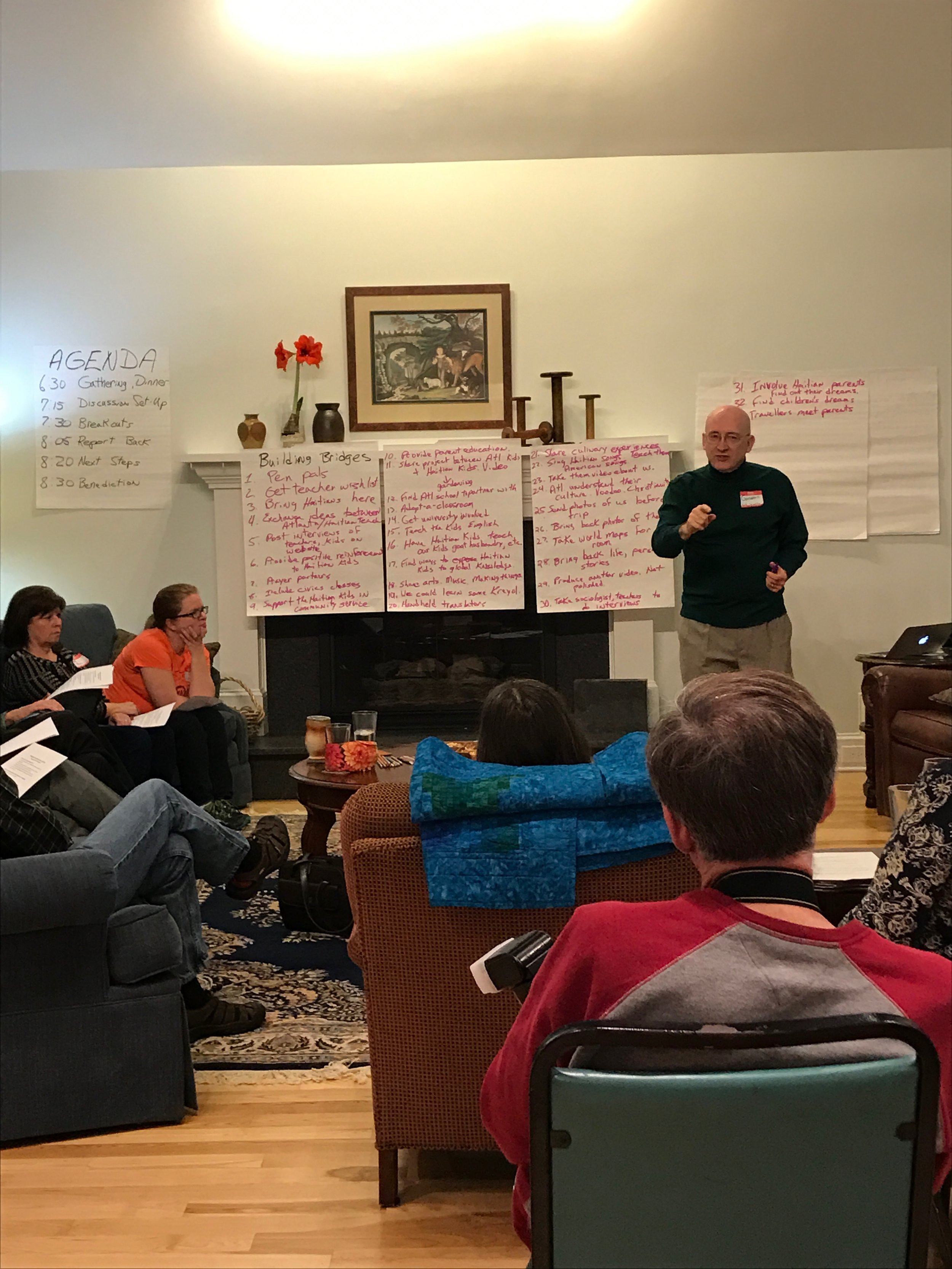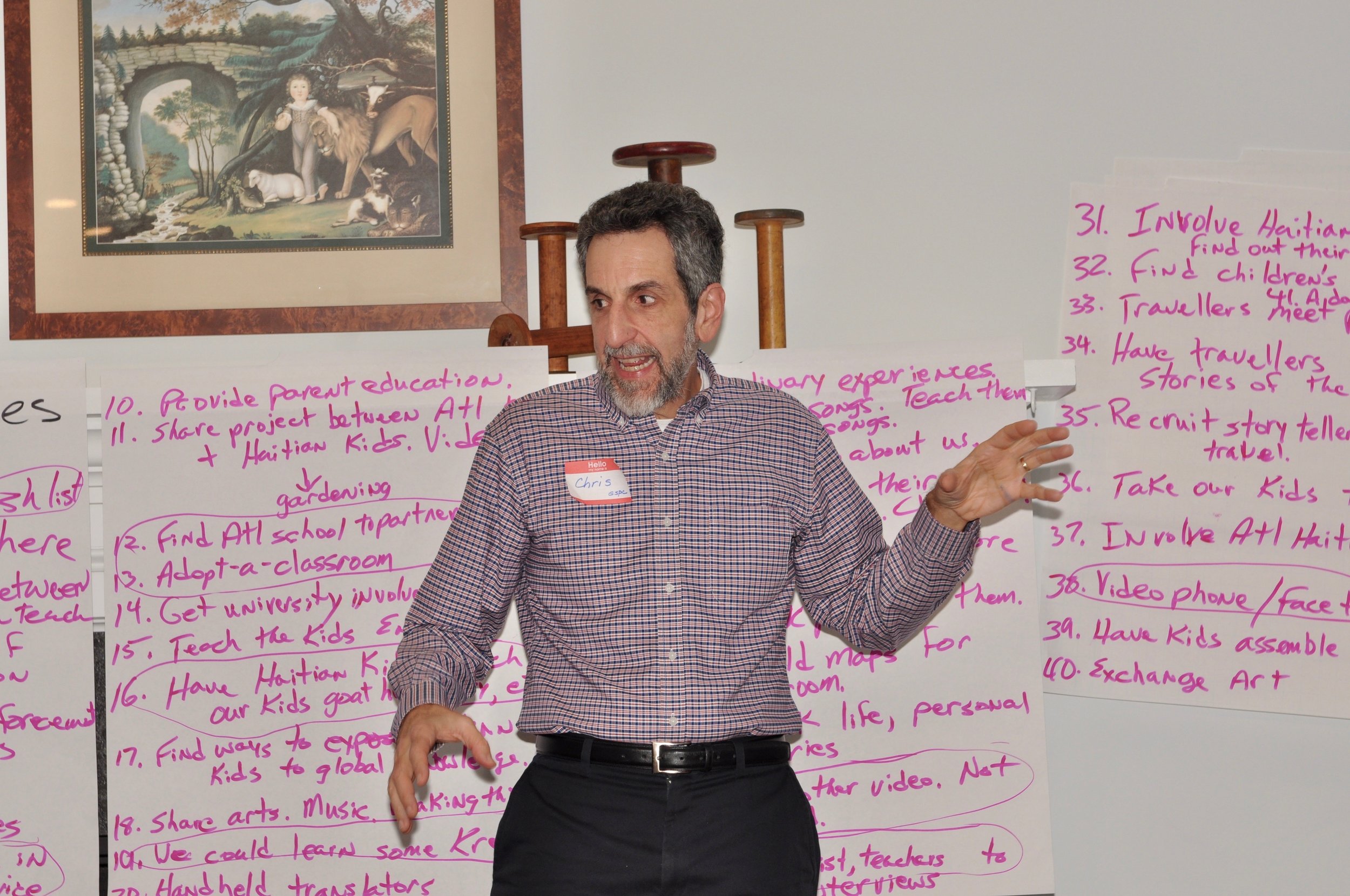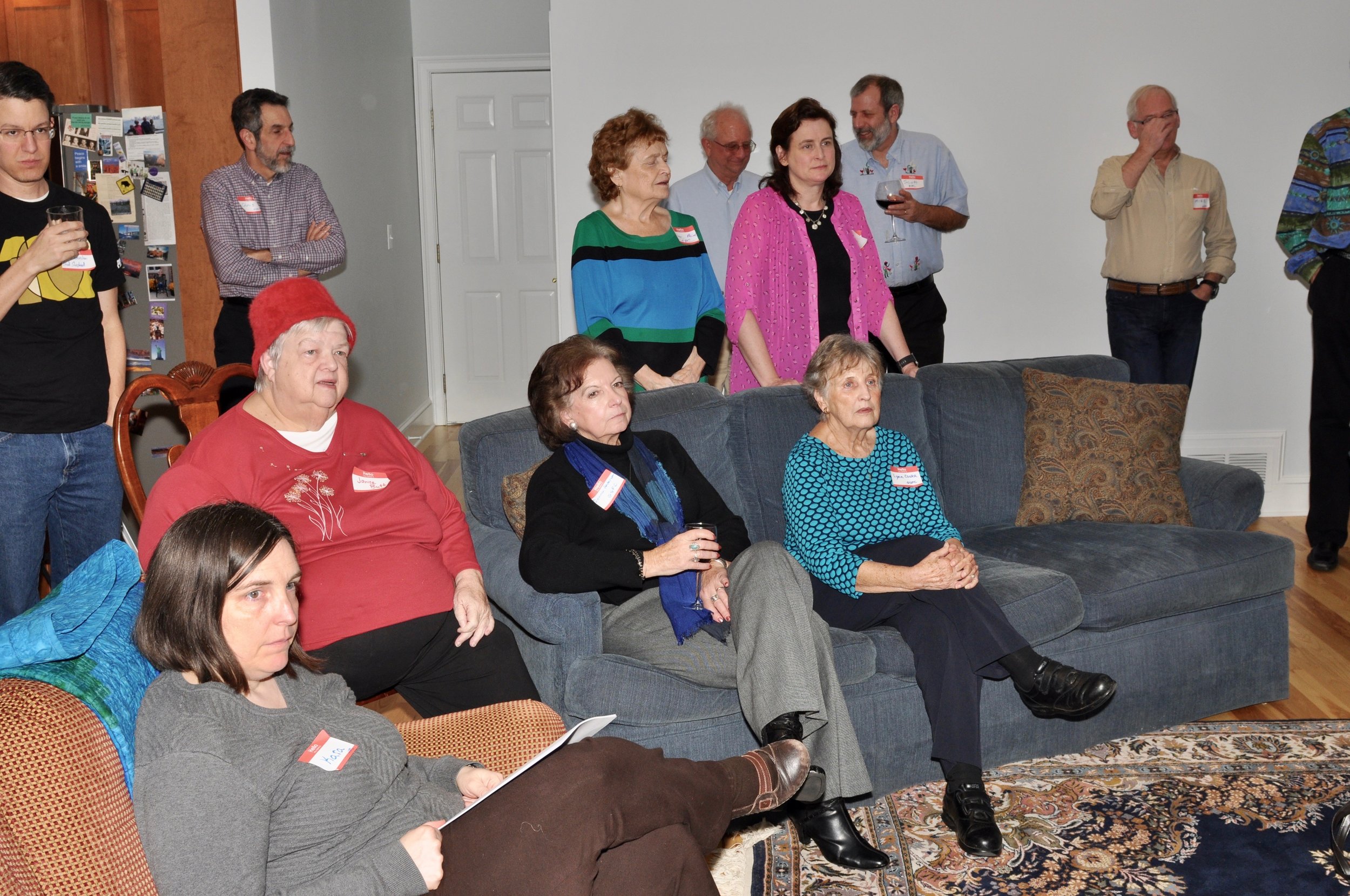On January 14, 2017 thirty five people, mostly educators, gathered to consider the following issue: How can we bridge the “connection gap” between Atlantans and the students, teachers, parents in our Haitian school.
Many great ideas were generated and most focused particularly on the power of storytelling through video, photographs and the arts. The evening was exciting and informative.
Joanne Folger from Good Shepherd Presbyterian Church reports "The gathering at the French's was great! Wonderful Haitian soup, wonderful conversations around the table, and wonderful brainstorming. The evening was organized from start to finish, yet I never felt rushed. Meeting and talking with Sophia was fantastic. Her personal input about the Haitian situation gave such meaningful insight. The ideas each focus group listed for the best approach to connect with the Haitian villagers are great. I wish it would be possible to implement each one of them. However, I am excited to see which one or two receive the emphasis. To establish a relationship with one child, one family, or one classroom, would surely make this project come alive for all concerned. It would indeed fire the passion to complete that 10 room school building!"
"What a wonderful evening! It was such a pleasure for Chris and I to spend time with this dynamic and dedicated group of people. While we had contributed to Seeds of Hope in the past, Chris and I had not developed a full emotional connection with this mission. This evening changed that for us! Beginning with an amazing meal and overwhelming hospitality, we immediately felt the love shared among those committed to this mission. This meeting really opened a door for us to develop a better understanding of the work in Haiti and how we might play a role. Gordon and the steering committee thoughtfully organized the meeting to foster an emotional connection by sharing a video and the history of the mission. After learning more, we were all charged with brainstorming new ideas to further the goal of connecting the Haitian and Atlantan communities. It was an exciting exchange of ideas fueled by the desire to build bridges with Haiti. We are so excited to see these ideas come to fruition! God was clearly present at the meeting and guiding all of us in the many ways that we might be a blessing to others. Chris and I are grateful for the chance to learn more and look forward to continuing our involvement." Chris and Kristy Gordon
